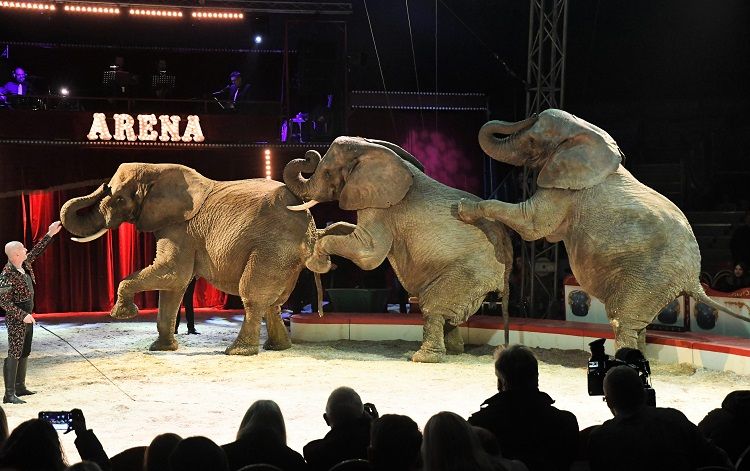Knuthenborg Safaripark in Lolland could become the new home of three elephants owned by Cirkus Arena.
The jumbos recently became surplus to requirements after new government legislation ruled that elephants, sea lions and zebras could no longer be used by circuses as performing animals.
Two possible options
The elephants will have an area sized 100,000-200,000 sqm to live in, and the safari park will take on all the associated costs.
However, negotiations are continuing as the circus is undecided whether to take the offer. Another option could be sending the elephants to southern or eastern Europe.
High-fiving farmers planning for 2019 after welcome rainfall
Recent rainfall has left the ground soft enough for farmers to get busy making preparations for next year. While most of 2018 has been written off, with total losses approaching 6.4 billion kroner, there had been fears that this year’s drought would have a severe knock-on effect had it continued through the whole summer. In fact, given the early harvest of most crops, farmers are in a position to get started on their autumn and winter position much earlier than normal.
Work could begin on wild boar fence at the beginning of 2019
Work can begin soon on the 70 km fence along the German-Danish border, recently agreed to prevent wild boar entering the country that might be carrying African swine fever, at the beginning of next year following the Environmental Protection Agency’s announcement that it has given its permission. The design of the 150 cm-high fence was left unchanged during the EPA’s consultation process, but some minor adjustments were made to the overall plan as 29 points of issue were addressed. The World Wildlife Fund questions whether the fence will work, suggesting that human actions – transport and food waste, for example – are far more likely to bring the fever into Denmark than wild boars.
Bans on pesticides near drilling for drinking water recommended
The Environmental Protection Agency has recommended bans on pesticides in the areas of Denmark where drilling for drinking water takes place. Such measures will limit the contamination of groundwater, it warns, but not eradicate it, as drinking water can be collected a long distance away from the wells. Already, the municipalities of Aarhus, Aalborg, Egedal and Sønderborg have issued bans, with Skanderborg expected to follow suit at the end of August.
Ban on barbecues mostly lifted
The ban on having barbecues has been rescinded across most of Jutland, as well as parts of Funen and Zealand, following the recent rainfall that has considerably dampened the ground. Grillers are advised to check their local emergency website before commencing. Among the municipalities against ending the ban are Randers, Favrskov and Djursland.
Multiple fish killed nitrogen emissions in Denmark’s second biggest lake
Some 80 tonnes of fish died in Lake Filsø in Jutland in July after a sudden release of nitrogen emissions from neighbouring fields. Socialdemocratiet wants planned emission reductions in 2021 to be brought forward, and for the offending farmland not to be used in the meantime. Jakob Ellemann-Jensen, the environment and food minister, has said he intends to read a report written by the University of Copenhagen about the incident before making a decision.
















